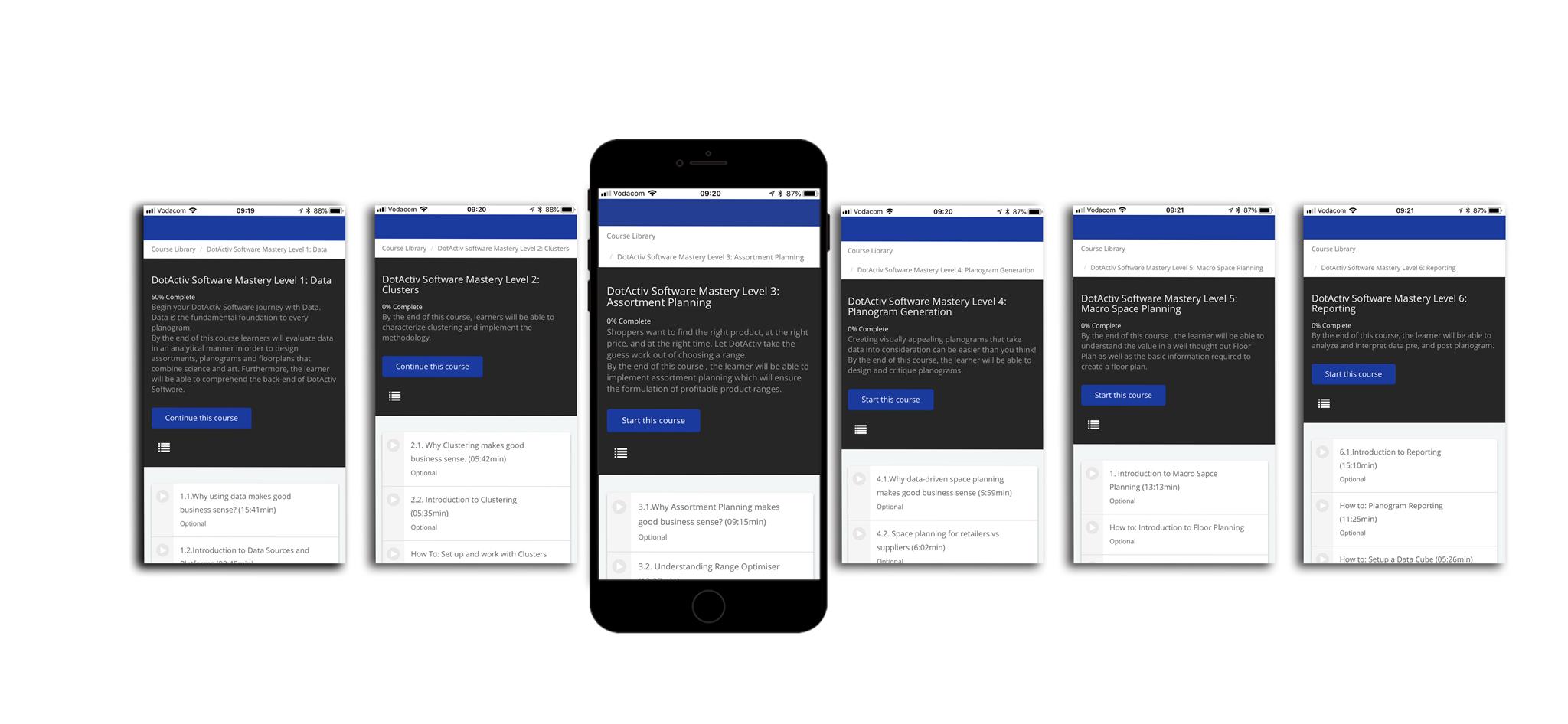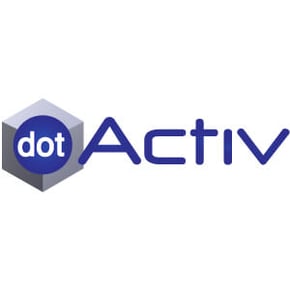
Considering the pace at which things change within retail, as well as the fierce nature of the industry, it’s critical that you keep ahead. An easy way of doing that is through self-education. In this case, we’re not only advocating the call to read retail-specific blogs or white papers. It’s also essential to enrol in a few retail training courses.
What is retail training?
As it stands, retail is a vast industry with many different topics that all need to be understood. Each subject also has a fair amount of jargon, which means it can become very confusing very quickly - even overwhelming or alienating if you’re new to the industry.
For that reason, when beginning any conversation around ‘retail training’, and especially when it comes to talking about which courses to choose, it’s critical first to understand it.
In the context of this piece, when we mention retail training, we’re referring to any courses that guide you around understanding and improving your retail business, be that at a broad or detailed level. More than that, you are exposed to learnings about streamlining processes, tips and tricks, as well as best practices to help you work more efficiently.
For example, it could be as broad as instruction on the basics of retail and product placement or as detailed as merchandising and display techniques.
As for its importance, let’s put it this way: your purpose as a retailer is to make money. Nothing less. You’d thus want to do everything in your power to ensure that happens. It’s in this instance where good quality retail training courses can help you.
In fact, it’s guaranteed to help. You only need to consider the impact it can have on the various aspects of your retail business. Buying, Customer Service, Planning, Category Management and more all require the right set of skills to get a positive result.
The best way to do that is to upskill yourself and your staff with retail training.
Why should you enrol in a retail training course?
Any argument about whether or not you should consider enrolling in a retail training course should hinge on the consequences of not doing so.
The most obvious repercussion is that you give your competitors an opportunity to leave you behind. In other words, you hand them the much-desired competitive advantage.
Considering the ever-evolving nature of retail, you could quite quickly find yourself far behind, and it can prove difficult to catch up. In fact, you could even say that it’s almost impossible to recover to the point of parity. That’s especially true if your competition continues to invest in training.
Besides getting left behind, the other main disadvantage is a lack of knowledge. Let us explain by looking at building planograms as an example.
When building a planogram, you must always keep in mind that it needs to be visually appealing so that it entices your customers to buy. That makes it sound easy. Place your items, adhere to visual merchandising principles, and there you’re done.
Of course, it’s not that simple. You also need to consider other factors such as your retail data. For example, an item that has been allocated the most space on your planogram happens to be a seasonal item. That means that it doesn’t sell all year round. In not knowing about or having access to data, you’d continue to give it the same amount of space, ending up with expired products which will cost you money to throw away and replace.
It doesn’t matter how confident you are at creating planograms. If you haven’t attended or undergone training, you won’t know about how the lack of data on a planogram can result in the mismanagement of stock, which damage your business.
In retail, understanding the knock-on effects is vital to your success.
 With DotActiv Academy, you can get access to our Software Mastery Levels 1 through 6. Evaluate data, characterise clustering, implement assortment planning, design planograms, understand floor planning, and analyse and interpret your retail data.
With DotActiv Academy, you can get access to our Software Mastery Levels 1 through 6. Evaluate data, characterise clustering, implement assortment planning, design planograms, understand floor planning, and analyse and interpret your retail data.
What to expect from a quality retail training course
Finding a retail training course online is easy. Type in the phrase into any search engine, and you’ll have millions of results in seconds. The tricky part is deciding on which one to choose.
Of course, you can make it easier on yourself by setting up criteria. That way, you can weed out the irrelevant from the relevant. More importantly, you can find a course that is worth spending your time and money on.
1. It should be available online
While in-person training still has its place in education - it’s just not as efficient as online training. There are many reasons why we say this.
For one, online training can be accessed quickly and at any time from wherever you are, be that at work during lunch, on the way to work, or at home after hours. That means it doesn’t affect your work hours or result in you having to take leave. That said, some companies are even happy to allocate the time for you to study if they see it as beneficial to their business. (At DotActiv, we do this by the way).
It also means you can create your own timeframe and not feel the rush that comes with classroom training. If you want to finish a lesson over a few days rather than one half-hour session, you have the option to do that.
Also, it's worth noting that everyone learns differently and so having the option to complete a course on your own time is valuable.
On the other hand, because it’s online, you can reference the material as many times as you want. For example, if you are unsure of a concept or term, instead of waiting for your next class (or trying to contact your professor after hours), you can refer back to the course material.
As a side note, the material should be set up in such a way that it attempts to cover everything, pre-empting any questions so that you don't have to ask anyone.
2. There should be some form of certification
The second non-negotiable characteristic of a quality retail training course is that there should be some form of certification. Not just a certificate of completion.
The reasons for this pretty straight-forward: a certification is a viable way of proving that knowledge transfer has occurred. And properly so.
Of course, it’s worth noting that any course can have a certification. Thus, in this context, that certification needs to carry weight and mean something to the individual completing the course. For example, when applying for a job and your future employer wants to see proof of your knowledge, you should be able to show it to them and feel confident that they’ll accept it.
On the other hand, a certification also tests your understanding of the topic. That’s especially true if you want to upskill your staff.
Let’s say that Joe Soap is a space planner at your store and has been for years. However, he has no assortment planning experience. By enrolling him in an assortment planning course, he can learn the theory and then test himself with practical examples.
Once certified, he’ll feel confident that he can apply what he’s learnt in your store. Moreover, whatever Joe Soap produces benefits both himself and your business.
3. The organisation facilitating the course must have the appropriate expertise
There is a lot of generic content on the web. In fact, if you’ve ever tried to search for something on the internet, you’ll know.
In pointing that out, one of the last things you want to do then is to spend your time and money on a course that isn’t worth it. And rightly so. That’s where the certification part comes in. Of course, that’s not the entire picture.
As much as there might be certification, the course also needs to be run by an institution or organisation that knows what they’re doing. In short, they need to be subject experts with the practical experience to back them up.
Let’s take DotActiv Academy as an example here.
DotActiv has been in the category management business for over 20 years. During this time, we’ve done (and continue to do) business with retailers and suppliers from across the world. During this time, we’ve been able to gather valuable insights and use what we’ve learnt to develop course material that is above industry standards.
There is also the point that DotActiv has staff based in over ten different worksites, each with their own learnings and experiences, which can further enrich any retail training course that you’d find within the DotActiv Academy.



